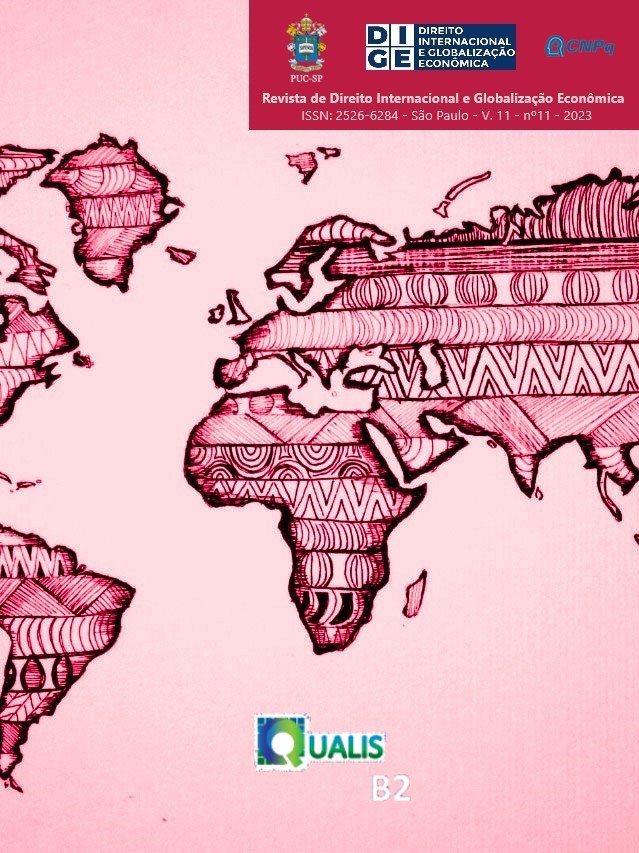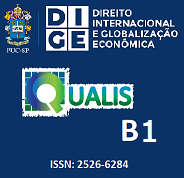Analysis about jurisdictional courts from the theory of the judicial trilemma
A case study of the International Criminal Court and the Brazilian Federal Supreme Court
DOI:
https://doi.org/10.23925/2526-6284/2023.v11n11.62735Keywords:
Judicial trilemma. International courts. International law. Constitutional law.Abstract
This essay intends to analyze, from the application of the theory of the judicial trilemma of professors Jeffrey L. Dunoff and Mark A. Pollack, the functioning of the International Criminal Court (ICC) and the Federal Supreme Court of Brazil. This theory was developed a priori to understand the functioning of international courts, however it was extended to the study of national supreme courts, such as the Supreme Court of the United States that the authors analyze. With the purpose of extending the use of this theory in studies of international and constitutional law, the article proposes to analyze the ICC and the Brazilian supreme court. For this, the theory of the judicial trilemma is first presented, in addition to its methodological and theoretical bases, and then it deals with the two cases that this essay intends to analyze. As a secondary objective, this essay seeks to disseminate the theory of the judicial trilemma to the public in other areas of human and social sciences, not being restricted to specialists of international courts and international law.
References
REFERÊNCIAS
DUNOFF, Jeffrey L.; POLLACK, Mark. A. O trilema judicial. Tradução Lucas Carlos Lima; Lucas Mendes Felippe. 1ª ed. Belo Horizonte, São Paulo: D’Plácido, 2021.
FERNANDES, Maria Cristina. A ascensão ao Supremo Tribunal Federal, segundo Fux e Barroso. Valor econômico, v. 17, n. 4074, 22/08/2016. Política, p. A6
KEOHANE, Robert. International Institutions and state power. Boulder: Westview Press, 1989.
KEOHANE, Robert. After hegemony. Cooperation and discord in the world political economy. Princeton: Princeton University Press, 2005.
VIEIRA, José Ribas. O STF e a Corte Suprema dos Estados Unidos da América - Autonomia e impasses. Revista de Informação Legislativa. Brasília a. 43 n. 171 jul./set. 2006.
Normas e Documentos:
BRASIL. Decreto nº 4.388 de 25 de setembro de 2002. Promulga o Estatuto de Roma do Tribunal Penal Internacional. Brasília, 2002. Disponível em: http://www.planalto.gov.br/ccivil_03/decreto/2002/d4388.htm
BRASIL. Constituição da República Federativa do Brasil. Brasília: DF, 1988. Disponível em: http://www.planalto.gov.br/ccivil_03/constituicao/constituicao.htm
BRASIL. Supremo Tribunal Federal. Regimento Interno (atualizado até a emenda regimental nº512016). Brasília, 2016. Disponível em: https://www.verbojuridico.com.br/vademecum/REGIMENTO%20STF.pdf
BRASIL. Lei nº 1.079, de 10 de abril de 1950. Define os crimes de responsabilidade e regula o respectivo processo de julgamento. Rio de Janeiro. Disponível em: http://www.planalto.gov.br/ccivil_03/leis/l1079.htm
BRASIL. Lei nº 10.461, de 17 de maio de 2002. Acrescenta alínea ao inciso I do art. 23 da Lei no 8.977, de 6 de janeiro de 1995, que dispõe sobre o Serviço de TV a Cabo, para incluir canal reservado ao Supremo Tribunal Federal. Brasília. Disponível em: http://www.planalto.gov.br/ccivil_03/leis/2002/l10461.htm
Decisões Internacionais:
Cour Pénale Internationale (Situation en République Démocratique du Congo - Affaire. Le procureur c. Bosco Ntaganda), 2019. N° : ICC-01/04-02/06
Cour Pénale Internationale (Situation en République Démocratique du Congo - Affaire. Le procureur c. Thomas Lubanga Dyilo), 2012. : ICC-01/04-01/06




